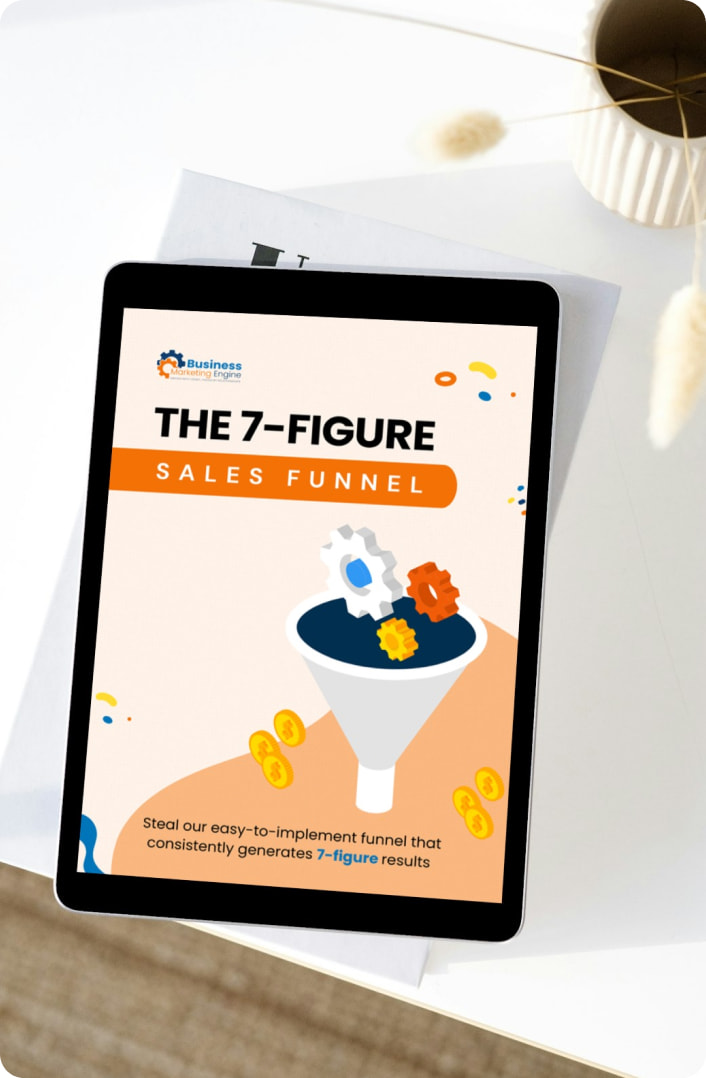Success finds us in the small moments, the unsuspecting moments and in the quiet habits of daily life. So, where does failure find us? In the same sneaky locations that we’ve managed to overlook for such a long time that we can no longer see them at all.
As we aim for more happiness, more growth and more freedom in our daily lives, we must identify the things that are holding us back. If you’re feeling overwhelmed or like you cannot achieve the success you’ve been working towards, take a step back and look at these barriers more objectively.
I’m going to show you the most common barriers and how you can, if you choose to, take massive action and remove those barriers. When you step up and change your daily life, you can achieve the success you want, need and deserve. Are you ready for change? Let’s get started.
1. Getting it “Perfect”
I recently added up the number of projects that we’ve completed at tEkk3. I was curious because I was updating our homepage and wanted to have an accurate estimation of what we’ve accomplished over the past 8 years. The number surprised me at first. We’ve completed 1,852 projects (as of a few days ago), and that got me thinking about how we drive hard as a team for completion, not perfection.
I’ve learned over the years that if we focus too much on perfection, this will delay launching the project. This will stall our entry into the marketplace. If we worry about being perfectionists, our product will no longer be relevant to our audience by the time we launch.
It is far better to launch with a rough version that meets the needs of our clients and of our client’s customers than it is to spend extra months creating a “perfect” and irrelevant product. Being late to market is a killer, but not launching at all, while trying to get things perfect, is fruitless.
I am not promoting laziness or lack of quality; I have just seen too many people and businesses fail because they are focused on getting things perfect before a launch. I believe that this obsession is actually more rooted in the next barrier we’ll cover here, which is fear.
Rather than trying to make something exceedingly perfect, release it early to a small group of customers. Get their real-time feedback and change your product or service accordingly. You must always be validating ideas with customer dollars and feedback, not just your internal mechanisms.
2. Fear of Failure
I have a big revelation for you, are you ready? Grab a pen and write this down:
“I am going to fail often in my pursuit of success. The faster I fail, the faster I can achieve success. I no longer believe failure is a negative word, but a positive learning experience.”
Now, hang that on your bathroom mirror, or on the bottom of your monitor. Repeat it over and over by putting it somewhere right in front of your face for a few weeks or months until you have accepted the truth of that statement.
I have failed thousands of times. I still get queasy when I am thinking about the next big move my company has to make, that I have to lead. That’s a very normal human reaction to fear. Your brain can’t always distinguish between the fear of failing in a meeting and the fear of a giant lion that is actually going to eat you alive.
Atif Saeed actually faced near-death when photographing this lion. He had a legitimate reason to be afraid. Are your fears just instincts that your brain hasn’t sorted out? Or, are they real fears that need to be dissected?
Don’t let fear of failure stop you. Take time to answer these questions honestly:
- What is the real worst-case scenario of failure in this instance?
- If I fail, what will be the positive learning experience I gain?
- Is the risk greater than or less than the potential reward of success?
If you take time to objectively think through the facts of the situation that is making you fearful, you may find that you’re just exaggerating the worst-case possibilities and overlooking the positives. Stop this bad behavior today and start thinking about ways to conquer fear of failure on a daily basis. Talk through your fears with a friend or trusted colleague and ask them to help you be more objective.
3. Fractured Focus
Multitasking is something that often hinders our success. I don’t adhere to the popular belief that we can’t multitask. I think that statement is an oversimplification of a much larger, scientific discovery, which I’ll save for another time.
Let’s identify times when we can multitask and times when we can’t. I’ll share my personal experiences and you can think of a few of your own.
I can multitask when I am:
- Working out: I listen to music and audiobooks.
- Writing: I listen to music while writing. It helps me focus.
- Designing: I often watch Netflix while drawing new layouts or designs.
- Handling technical work like WordPress installations on my server: I watch Netflix or YouTube tutorials.
- Doing dishes: I listen to podcasts while I do dishes.
- Driving: I listen to podcasts and audiobooks while driving. I also make a lot of phone calls while driving (yes I use a headset!).
- Talking on the phone: I can write detailed notes.
I could go on with some more examples, but these are the ones that come to mind easily. What things can you do while multitasking? I think that there is wasted time where we should be multitasking, but I don’t believe we should ever fracture our focus.
Let’s take an example from my list above. When I am working out, I follow the same overall routine each morning. I don’t have to think about what to do next or talk myself through the routine. It is an autopilot activity, and I actually find that listening to something enhances my experience and motivation. It allows me to focus clearly on working out while learning something new and valuable. Multitasking improves my focus in this case.
Here are some activities that I cannot multitask while doing:
- While writing, I cannot listen to music with words and I cannot watch Netflix. It is too distracting to process to sets of words at once, the verbal and the written.
- While talking on the phone, I cannot focus well on reading or performing technical work. I can scan or do something simple, but I cannot do anything complex.
- I cannot write a blog post and have a verbal conversation.
- I cannot type an instant messenger conversation and have a verbal conversation at the same time.
- I cannot work on two website updates at once.
- I cannot design two new layouts at once.
These are probably obvious failures in multitasking attempts. What things can you not do well simultaneously? Are there any activities that are fracturing your focus and not helping you succeed?
Sometimes we can let something small and unobtrusive creep into our daily life that is actually causing us to try to multitask in a less than effective manner. If you looked at your past week, which days did you feel especially frazzled? Were there things pulling at you that caused you to lose focus?
Focusing on a single task until completion is one of the best ways that you can laser in on the success and goals that you want. Don’t allow too many distractions to overtake your day. Do one thing well, to completion, and you’ll find that your stress level goes down and your success rate goes up!
4. Lack of Structured Time
One interesting phenomenon that I have been studying this year is Parkinson’s Law. This law states that, “Work expands so as to fill the time available for its completion,” and this is definitely an irrefutable law of life. As creatures who understand the world around us in measurements of time and space, it’s easy to see how we align our actions within the parameters we have given ourselves or the parameters others have given us.
Do you remember cramming for a test in school? How about when an important presentation got moved up to tomorrow instead of next week? In both cases, you probably did more work in less time than you ever thought possible. That is because of Parkinson’s Law. How can you apply this to everyday life?
I’ve learned to set more rigid time constraints on meetings, flat rate deliverables, and internal project deadlines. This helps my team and I be more productive and efficient. Do you have a set amount of time each morning to respond to email? Do you have limited allowance of time for reviewing those that report to you?
When we don’t have structured time slots for each day, we can easily allow a project to overtake an entire time frame. Setting out daily time slots for each activity will help you deliver better results faster. When you balance this with focusing on one thing, you will find a happy medium that brings you the best results.
Work on tight deadlines, be consistent in spending structured amounts of time each day on your goals, and require small incremental progress in short time frames from your team. This approach will improve productivity and profitability immensely when applied properly!
5. Working Too Much
I have worked more 18-20 hour days than I care to count at this point in my life. I used to think that this work regimen would improve productivity and results across the board for me. I was very wrong about that assumption, and here’s why:
- Remember Parkinson’s Law? Working too much gives room for lazy objectives and poor focus.
- We lose productivity after a certain point. You know what that point is for you, so don’t cross it.
- Stepping away from your work to go outside for a walk, spend time with a loved one or go see a movie allows your subconscious mind to work on your problems for you.
- Stress comes from working too much and stress doesn’t fuel creativity.
- Your health suffers if you overwork yourself too often. You can’t be successful while sick in the hospital.
If you are working too much, all the time, you’re going to burn out. Your focus will falter and your fears will rise because you are relying only on your hard work instead of other areas that need your attention. There are definitely short seasons, let me reiterate that, there are short seasons that might require working long hours and working incredibly hard, but these shouldn’t last more than 90 days at most (in my opinion). If you passed that period, it will start to become a very deep-seated habit, and that’s not healthy.
Think about the last time you took a vacation. Did everything run well without you? In most cases, the businesses probably didn’t burn to the ground. You probably came back to a few issues, but nothing cataclysmic. If your business can run without you for a short time, realize that working too much isn’t the answer.
Recruiting and delegating properly are steps in the right direction if you’re working too much right now. You also need to plan and commit to a daily stop time. Don’t work until you can’t work anymore. Set a target and worst-case stop time for the day. Your work will be there tomorrow and a breather will refresh you and make you more productive in all areas. Don’t let working too much continue to be a barrier in the way of your success. Step back, relax and work less.
Wrap Up
These are the 5 biggest barriers to my own success that I have faced over the years. Perfectionism, fear of failure, fractured focus, lack of structured time, and working too much can all create problems if not dealt with decisively. As you look forward into the coming weeks, what can you implement on a daily basis that will eliminate these barriers? Write down 2-3 action steps right now that will help you achieve more daily success.
Do you have other barriers in your business? Is marketing faltering, is your website out of date, or are you in need someone to come in and help you at a strategic level? Contact us today and we’ll help you





